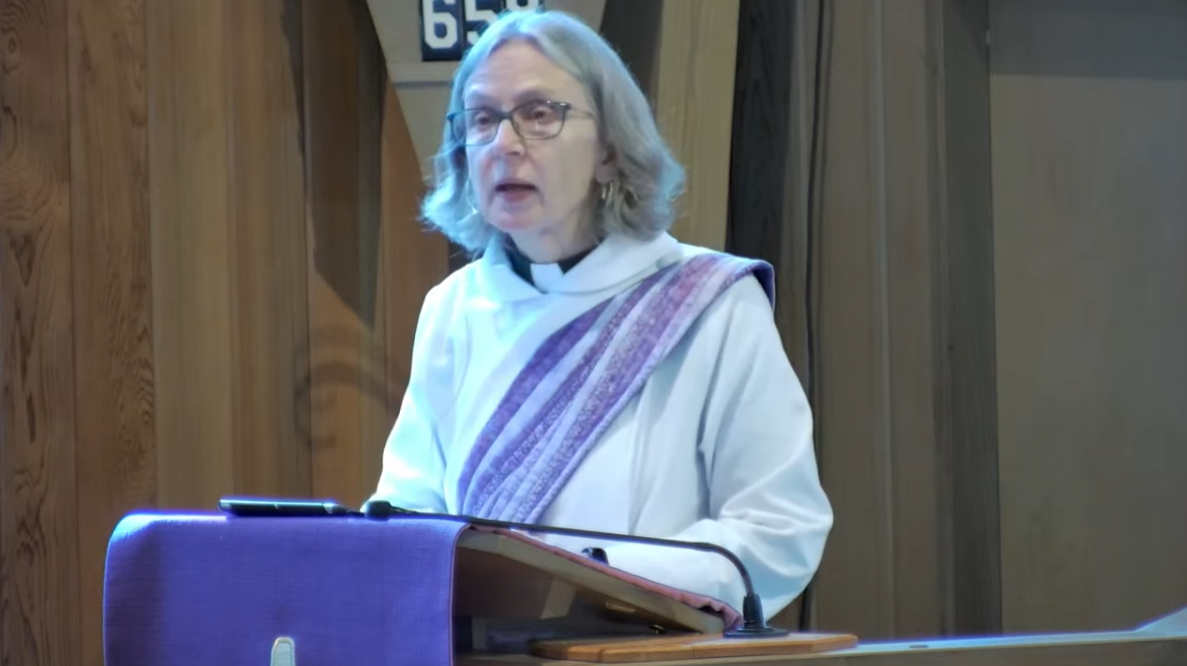What makes you come alive?

Howard Thurman, the great American theologian, Christian mystic and civil rights leader of the 20th century, once said “Don’t ask what the world needs. Ask what makes you come alive, and go and do that, because what the world needs is people who have come alive.”
What makes you come alive? Our scripture readings this morning offer us various insights on this question.
The prophet Isaiah, speaking out the words of the Lord, wonders why people spend their time working to earn money to pay for food and drink that do not satisfy the body and soul when God has prepared for them a banquet feast of rich foods and milk and wine – a banquet that is free – that is, the free gift of God’s grace. God has prepared this rich feast for those who return to the Lord and listen carefully to the word of God. “Incline your ear, and come to me; listen so that you may live.”
The Psalmist is longing to satisfy the thirst of their soul and the faintness of their body; they are crying out for nourishment; crying out to live. They come alive when they turn to God; when they gaze upon God’s face; when they experience God’s steadfast love for them. Then their “spirit is content, as with the richest of foods” that feed and satisfy their longings and give them life.
The apostle Paul, writing to the Corinthians, reminds them – and us – that when Moses led the Hebrew people out of Egypt, into freedom and liberation, heading toward the Promised Land, God was with them; protecting them; providing daily nourishment for their bodies (manna and quail to eat; water from the rock to drink) and for their souls – the spiritual rock that is Christ, that followed them, to sustain them and give them life for the journey. Yet, the people had trouble trusting in God’s presence and listening to God’s voice; they allowed themselves to be distracted by their longing to return to their old familiar life in Egypt and by their fear of entering into the new land that God promised them. In turning away from God, they turned away from the rich life God had waiting for them on the other side of the river.
Now we turn to the words of Jesus, spoken to his disciples as they were on their way to Jerusalem. Earlier in Luke we are told that Jesus “set his face toward Jerusalem” (Luke 9:51); he knew he was going there to die on the cross. He went anyway. Along the way, he continues to teach his disciples, and the crowds that surrounded him, what it means to follow him in challenging times.
The disciples had heard of some recent tragic events in the area – Galilean Jews who had been killed in the temple and then had their blood mixed with the blood of the sacrifices, under orders the brutal Roman governor, Pilate; and the tower that fell on 18 Jewish construction workers at one of Pilate’s prime projects (building a new aqueduct).
Both of these tragedies happened under the watch of the Roman Empire; they were caused not by the sins of the people who were killed, Jesus tells us, but by the harsh conditions under which the Empire forced them to live.
Living under Empire is challenging; it’s easy to get sucked into the cycle of working for bread and power and protection that we think Empire will provide us; it’s easy to turn away from trusting in God and God’s promise – God’s covenant – to be with us and protect us and provide for all our physical and spiritual needs.
Repent, Jesus says – turn back to God; listen to God; trust in God; be willing to change your mind and your heart and your actions; live differently now so that you might live fully now and in God’s kin-dom to come; live fully in your body and in your soul so that you may know the abundant life that Jesus comes to give all people; the abundant life of God’s grace and love and mercy; freely given to all people through the life, death and resurrection of Jesus Christ.
What makes you come alive?
This is a question of discernment which is a process of repentance; of turning back to God; listening deeply for the guidance of the Holy Spirit, as it is revealed to us through God’s word; through prayer and reflection; through silence and directed conversation and then allowing the Holy Spirit to change us – to change our thinking and feeling and behaving – so that the new thing that God is doing in our lives – and our creator God is always doing something new in our lives – can emerge and come to life.
Discernment is listening for the “still small voice” (1 Kings 19:12) of God speaking to us with love – as individuals and as a community of faith and ignoring the loud voices spewing hate in the public square.
Discernment is listening, so that we may live.
Discernment takes time and it takes work; patient, faithful work of tending the soil in which we are rooted and the ground on which we stand – the ground that is Jesus Christ – so that we may “continue to live (our) lives in him, rooted and built up in him and established in the faith, just as you were taught, abounding in thanksgiving.” (Col 2:6-7)
Then, in due season, discernment bears fruit – fruit that is “worthy of repentance” (Luke 3:8); fruit for which Jesus “….chose us…And…appointed (us) to go and bear…fruit that will last” (John 15:16).
The kind of fruit that makes us – and the world – come alive.
Some of you have been to at least one of the four Open Forums that Holy Trinity’s Transition Team has hosted in the last six months. In those Open Forums, you have had the opportunity to practice discernment in a communal setting, as we work toward discerning where the Holy Spirit is leading Holy Trinity now and we work toward understanding what might need to change at Holy Trinity in order to move toward where the Holy Spirit is leading you.
Discernment takes time and it takes work. Over the next several months, we will continue the transition process at Holy Trinity, turning back to God and listening for the Holy Spirit to guide Holy Trinity into the next season of living faithfully and abundantly, coming alive in Christ Jesus, and bearing good fruit in this community of faith, in this local community, and in this world.
What makes you come alive?
What makes Holy Trinity come alive?
Where is the Holy Spirit leading Holy Trinity now?
These are ongoing and important questions. I hope you will take time in these next months to consider these questions and to participate in the transition process. Ponder these questions individually and communally; in discernment; listening to God, so that you – and Holy Trinity – may live.

